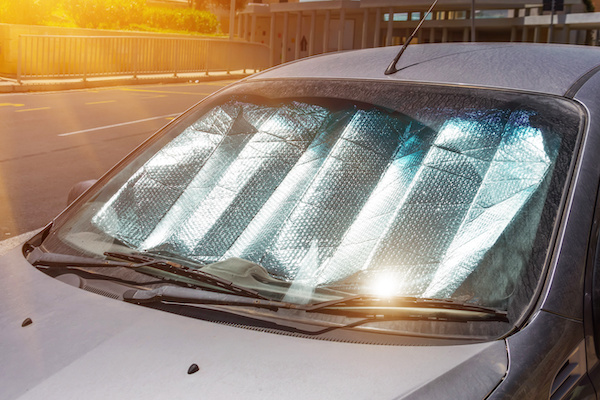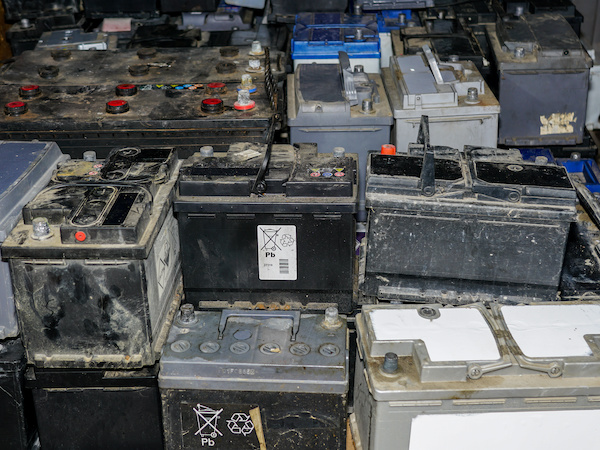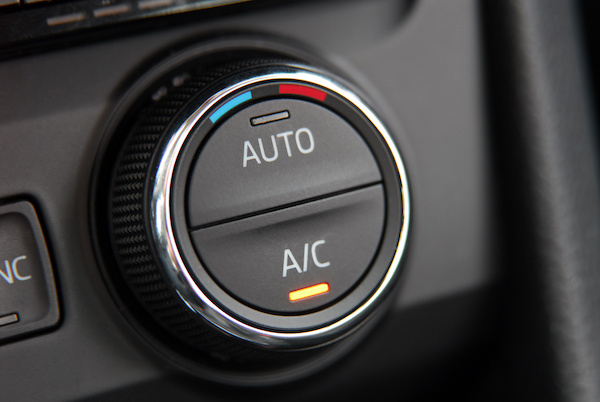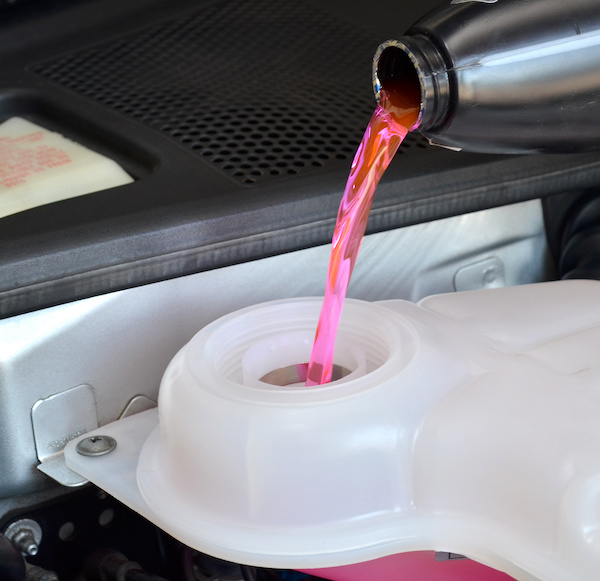Posted on 7/31/2023

As the summer heat intensifies, it brings potential hazards to your car's interior. Prolonged exposure to the sun may cause damage, including fading or cracking of upholstery, dashboard warping, and deterioration of plastic components. To protect your car's interior from sun damage and keep it looking its best, follow these preventive measures: 1. Park in Shades Park your vehicle in a shaded area to minimize direct sunlight exposure. Utilize parking garages, covered parking spaces or seek natural shade from trees or buildings. 2. Use Window Shades or Sunshades Window shades are an effective way to block UV rays from entering your car through windows. Invest in quality window shades that fit correctly and cover all windows — this will help reduce heat buildup inside the cabin and prevent sun damage. 3. Cover Seats and Dashboard Consider using seat covers made from UV-protected materials that shield seats from direct sunlight and add a touch of style. Additionally, dr ... read more
Posted on 6/30/2023

The leading cause to battery failure is most commonly a driver's driving habits. One of the most frustrating scenarios for a driver is getting into your car and having your vehicle refuse to start. A car's battery, though small, is a significant part of the vehicle and the vehicle will not start with flat battery. Let's look at some common causes of car battery failure. 1. Declining with Age With time, no matter how durable and long-lasting a car battery is, it will perish. This is because over time, the batteries internal resistance increases, leading to failure. 2. Bad Management Car batteries require care and maintenance too. Improper care is a leading cause of battery failure. If you are not sure of how to take care of and store your battery properly when not in use, read your manufacturer's instructions. 3. Corrosion Battery terminals are prone to corrosion due to corrosive battery acid. The battery will not charge if the terminals are corroded. Clean the bat ... read more
Posted on 5/30/2023

There's nothing quite as frustrating as a malfunctioning air conditioning system on a scorching hot day. The need for a reliable and efficient A/C becomes paramount as the temperature rises in Merritt Island. However, like any other vehicle component, the A/C system is susceptible to wear and tear, requiring occasional repairs to keep it running smoothly. Below are some of the most common A/C repairs that vehicle owners encounter: Refrigerant Leaks: One of the primary culprits behind A/C problems is refrigerant leaks. Over time, the refrigerant may escape through small cracks or worn-out seals, resulting in a decline in cooling performance. If you catch your A/C blowing warm air or it takes longer than usual to cool the cabin, a refrigerant leak could be the issue. Compressor Failure: The compressor is in charge of pressurizing and circulating the refrigerant, allowing the system to cool the air. However, continuous usage and lack of maintenance can lead to compressor fail ... read more
Posted on 4/26/2023
.jpeg)
With the arrival of spring comes the need of preparing your car for the warmer months ahead. The winter months can take a toll on your car. That's why spring maintenance is crucial. To help you keep your car in top shape this spring, here is a spring maintenance checklist. 1. Check your Tires After the snow and ice have gone, it's time to swap back to your normal summer or performance tyres if you were using snow tires. For all season tires, you can instead rotate them to extend their years of service. Other things to check are tire pressure and uneven tread wear. 2. Change Engine Oil Maintain your car in peak condition by timing oil changes with the seasons. For optimum engine efficiency, it's recommended to replace the oil and filter every three months or 3,000 miles, whichever comes first. 3. Examine Windshield Wiper Blades Wiper blades are susceptible to wear and damage throughout the winter months due to snow and road salt. Replace them before the spring showers hit ... read more
Posted on 3/29/2023

Antifreeze, also known as engine coolant, is a chemical solution that circulates through your car's engine to regulate its temperature. The primary function of antifreeze is to prevent the engine from overheating by absorbing and dissipating the heat generated during combustion. Additionally, it helps prevent the engine from freezing in cold weather by lowering the freezing point of water. How Does Antifreeze Work? Antifreeze is typically a blend of water and ethylene glycol or propylene glycol, along with other additives such as corrosion inhibitors, lubricants, and pH stabilizers. It is intended to raise the boiling point and lower the freezing point of water, allowing your engine to operate effectively in both hot and cold climates. When the engine is on, the antifreeze is moved through the engine and absorbs heat generated by the combustion process. The heated antifreeze then passes through the radiator, where it's cooled by air passing over the radiator's fins. As ... read more